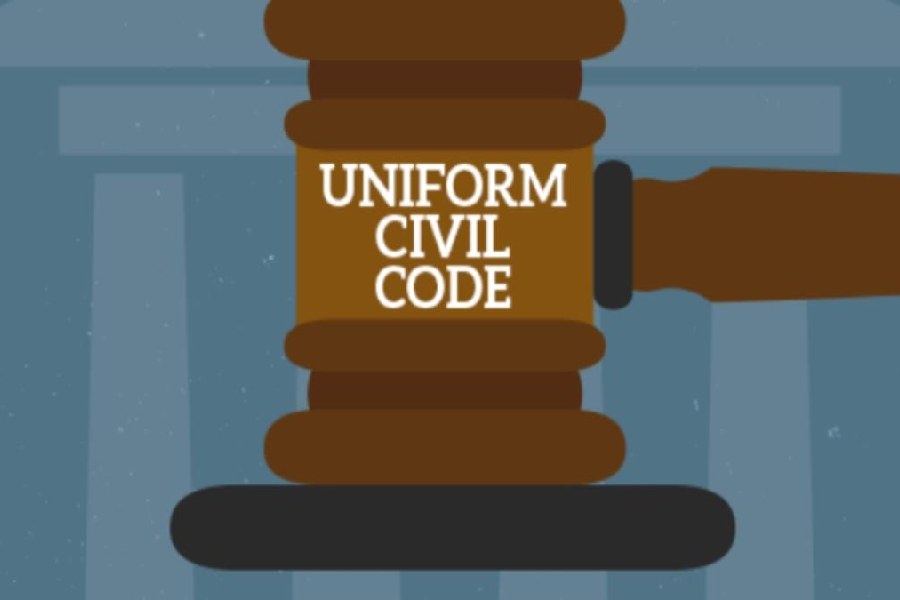In April, a Muslim lady petitioned the Supreme Court seeking relief for an unusual problem. She and her father were both non-believers, but given the law, they would have to be governed in a matter of inheritance by the Muslim personal law, which, she argued, violated her fundamental rights.
We are not interested in the intricacies of succession or inheritance but in the situation of a person who is not a believer rejecting religion and considering herself/himself antagonistic to or not invested in it. How is a non-religious and/or atheistic person treated by the State?
The petitioner made the interesting point that a person who left her faith in Islam would be “ousted from her community” and would not be entitled to inheritance rights. This statement encompasses the two most important aspects of social identity and selfhood. First, a person repudiating her/his faith will be cast out of her/his community and, second, she/he will no longer be visible to the State. We will note that the social being and legal/juridical being can not only be misaligned but also be at cross-purposes.
Theoretically speaking, at the social and communitarian level, a person may easily exist both as atheistic and removed from religion in various degrees. But such a person will, nevertheless, be seen as belonging to a religious group of birth, if nothing else, through family nexuses and participation in religious observances. An atheist from a Hindu family who keeps a distance from all things religious is not usually identified as an atheist but as a Hindu with a bugbear.
Neither everyday categories nor the academic apparatus of sociological theory can accommodate the social ontology of atheists. They can’t even fall through the cracks, for, vanishingly small units, too, are relentlessly subsumed under larger ones. This particular point brings us to the State. Society is protean, fluid and cannot be changed on procrustean beds. But States are constructed entities. What they do is revealing of immediate motives. In India, the fiction of the untethered citizen-individual who carries no marker of religious identity does not exist for the State. It ceaselessly classifies and reclassifies citizens in terms of religious belonging.
The Hindu Marriage Act, 1955, for instance, has capacious definitions to stick tags on everyone. Thus, on the one hand, it is applicable directly to Hindus, Sikhs, Jains and Buddhists and, on the other, to all those who are not Muslim, Parsi, Christian and Jew. If, say, you are an atheistic Brahmo, you’re still caught.
It was only in Census 2001 that a category was introduced to enable people to not state religious affiliation. The suggestive rubric was ‘religion not stated’. There was no recognition in legal form that there were people who actually rejected religion. Perhaps it wasn’t odd that in 2001 only 700,000 stated no religious affiliation, while in 2011 the number rose to 2.9 million.
According to a 2012 WIN-Gallup Global Index of Religion and Atheism report, 81% of Indians were religious, 13% were non-religious, 3% were convinced atheists, and 3% were unsure or did not respond; a demographic study by Cambridge University Press in 2004 found 2%-6% of Indians identified as atheists or irreligious.
The question of giving rights to those without religion is related to Article 25, which gives Indians the freedom of conscience. Clearly, this right has been circumscribed in practical terms. But the uneasy location of ‘those without’ religion also points a finger at one of the pet projects of the existing regime: the Uniform Civil Code.
The question is whether a UCC will just give the country a standard set of laws to govern their personal matters and, by doing so, lay down a marker for a logically consequent process — the untethering of individuals from the deleterious bonds of communal identification. B.R. Ambedkar wanted the individual with robust rights to be the basic building block, but it hasn’t happened. Recognising atheists could help steer today’s communal political discourse away from its faith-based instigations to something more civic-minded.
Suhit K. Sen is the author of The Paradox of Populism: The Indira Gandhi Years, 1966-77











